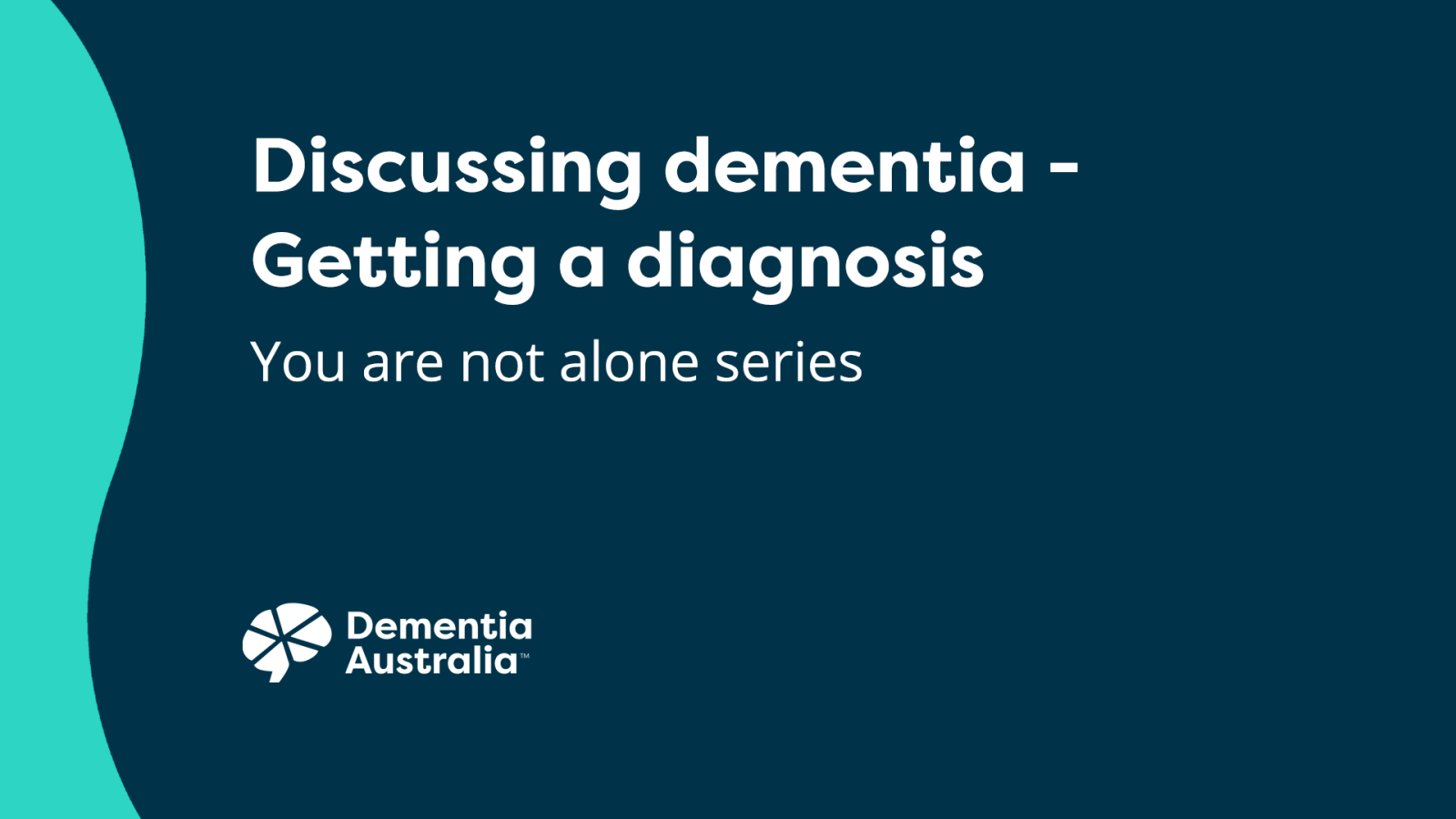Getting a diagnosis
If you’re worried about changes that you or someone close to you are experiencing, it’s important to get a proper assessment. Memory loss or acting unlike yourself could be symptoms of younger onset dementia.
If you do have younger onset dementia, early diagnosis can make a big difference. You can access support, resources and programs, or medication that might help. It also means you can plan for the future.
Watch the following video to see the benefits of getting a diagnosis or read the transcript.
Where can you get a diagnosis?
To get a younger onset dementia diagnosis, you’ll need to see your general practitioner (GP). They may identify initial problems and refer you for a specialist assessment. Your GP may also be the person you and your family turn to for ongoing medical support.
Visit our web page to learn more about talking to your doctor.
Is it difficult to get diagnosed with younger onset dementia?
Dementia is one of the most challenging and misunderstood conditions in Australia. It can be difficult to diagnose, as it is shares many features of common conditions (e.g. depression) and normal ageing. Younger onset dementia can be particularly difficult to diagnose because dementia is less common in people under 65.
If you suspect you have dementia, ask your doctor for an assessment. Early diagnosis can help you live well with dementia.
Coming to terms with your diagnosis
If you’ve been diagnosed with dementia, you may experience a range of emotions, such as anger or denial. Accepting your diagnosis may take some time, but is an important part of your journey. You can turn to Dementia Australia for support at any time.
Discussing your diagnosis
At some point, you will need to share your diagnosis with your family, friends and colleagues. It can help to come prepared. Visit our web page on telling family and friends to find the best way to break the news to people close to you.

